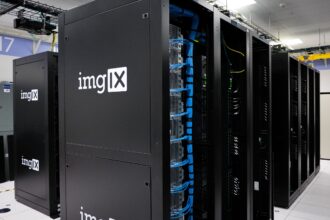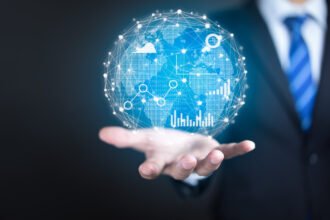Big data has been a readily available resource for some years now. However several obstacles have prevented it from becoming a mainstream tool to solve social challenges.
For one, people are concerned about privacy. Our personal devices transmit more private data than ever before, which could be shared inadvertently by mobile companies or service providers. Security breaches and hacks are also common occurrences in the digital world, leaving many to worry that big data can be used for less than good intentions if found in the wrong hands. And finally, our capacity in terms of computing and manpower limit how much big data we can reasonably analyze to be of use — for now.
These concerns are valid, but big data is already showing that the pros of utilizing this information now far outweigh the cons. Here are just a few ways that big data already helps solve social challenges.
The Ability to Ask New Questions
“When people and organizations are given access to as much data as possible,” says James Chapman, CEO of Bella Bathrooms, “it makes them uniquely positioned to discover and investigate questions that were never asked before. For example, people with big data at their fingertips can work towards solving known global issues or business challenges with the help of visual analytics.”
Big data allows us to ask a series of questions to evaluate problems from all new angles. Over time, these questions can turn into a hypothesis, which can spark new ideas for solving the issue.
At this point, social and logistical experts can join the conversation with IT-experts, programmers and app specialists in a way that wasn’t possible before.
Just consider Vision Zero, a project aimed at reducing traffic-related deaths and injuries. It’s been launched in New York City, San Jose, New Orleans and Seattle, to collect data on the various factors that influence accidents. In New York, the project’s findings are already affecting city planning decisions regarding traffic calming measures. With the right amount of data, Vision Zero believes it’s possible to reduce traffic-related deaths to virtually zero.
Finding New Sources of Data
According to MicroMain, “Amazingly, we have only managed to analyze 1% of the world’s available data, and some of that data has been analyzed over and over again.”
With the rise of big data, we’re gaining first-time access to a wide range of unconventional data sources, which can be used to tackle some of the most uncontrollable global issues, such as urban traffic congestion and disease outbreaks. Nontraditional data sources, such as sensor data or website traffic, can be used in combination with existing data to paint a more complete picture of the issues. This greater understanding can then inform the most relevant approaches to solve them.
NGO Ushahidi is a great example of an organization using new sources of data to get real-time insights for social good. Ushahidi collects data from SMS, email, Twitter and mobile apps to get valuable information about important events, such as a natural disaster, protest, or election. They’ve worked with the UN to improve peacekeeping operations, and provided important reports to journalists to uncover human rights issues and Uganda. These are just a few of the ways they’re using big data for good.
Solving the Most Intractable Social Issues
Information of any kind can be used for good and bad. The concerns people have about big data are relevant, but it seems few are considering the overwhelming benefits it can have for the world’s biggest challenges.
Unconventional data sources can lead to the development of novel approaches to solving problems. Collective knowledge such as this is already being used to explore ways to tackle climate change, healthy ageing and credit data keeping,” says Arun Ramamurthy of Credit Sudhaar.
One of the most promising examples of this India’s efforts to issue Aadhaar cards with unique ID numbers to all of its citizens. The cards are associated with biometric data that makes it possible to generate and monitor health and demographic data, such as medical records and health insurance information for low-income families. In the long run, a system like this could be used to amass an unprecedented amount of health statistics that can be used to inform planning and delivery of services that meet public health demands.
The risks of using big data are real. But the important thing to remember is that throughout history, overall, more knowledge has served to improve people’s lives and standard of living. Remaining in the dark when you know the information is out there can’t boast the same benefits.
Know of any other ways big data helps solve social challenges? Tell me in the comments!








